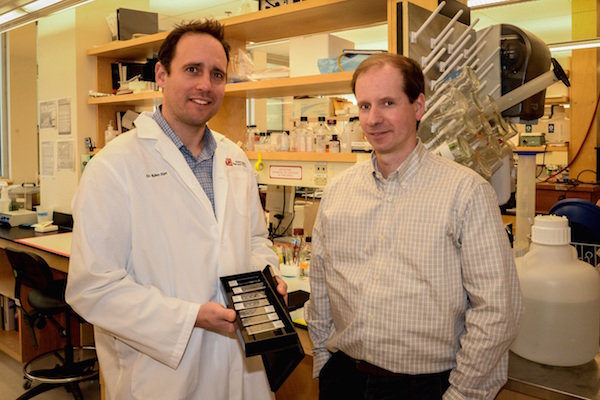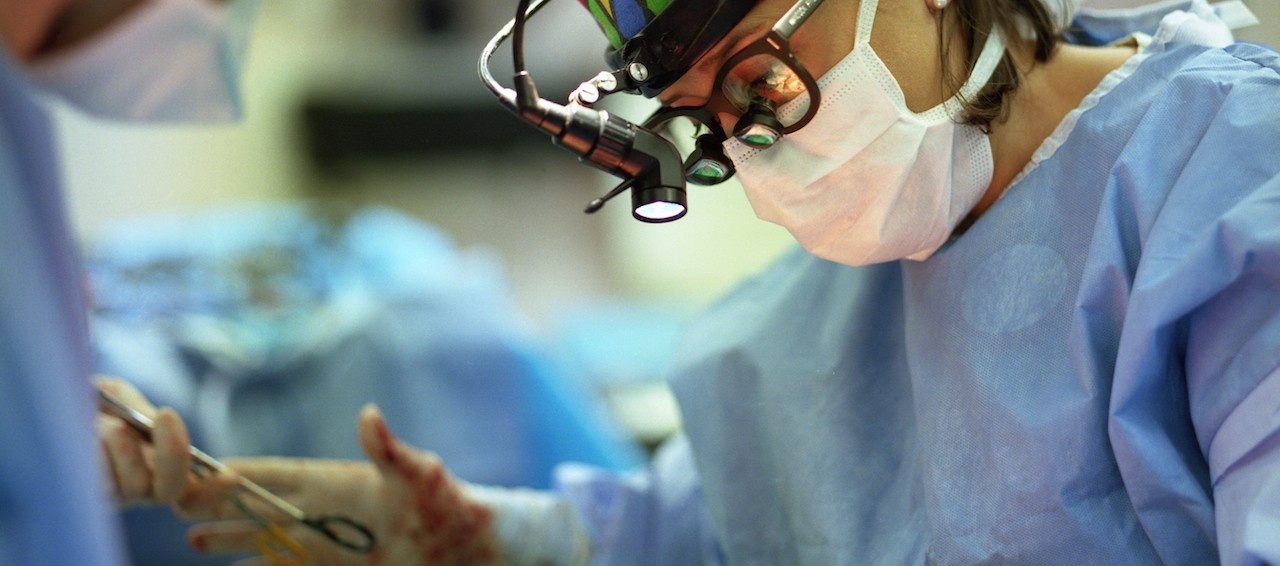HPV and Oral Cancer
Tracing how virus triggers cancer, search for new treatment strategies
As an ear, nose and throat surgeon, Dr. Robert Hart sees a major shift in the burden of throat and mouth cancers—from older patients with smoking and alcohol-related cancers, to younger patients with cancers caused by the human papillomavirus, or HPV, the same virus that causes cervical cancer.
“There’s been a huge increase in HPV-positive oral cancers, which now make up about 80 per cent of the oral-pharyngeal squamous cell carcinoma cases we see,” notes Dr. Hart, an associate professor in Dal Surgery’s Division of Otolaryngology—Head and Neck Surgery, and a staff surgeon at the QEII Health Sciences Centre in Halifax, N.S. “Today’s HPV vaccination programs may help lower the rates of all HPV-related cancers several decades down the road, but we still need better screening, diagnosis and treatment for this increasingly prevalent oral cancer.”
Dr. Hart has joined forces with a basic scientist, Dr. James Fawcett, to learn just how this common and highly communicable virus triggers the growth of cancers in the mouth and throat.
 Surgeon Dr. Robert Hart and scientist Dr. James Fawcett examine oral cancer development in human cancer cells provided to them by colleagues in the Department of Pathology.
Surgeon Dr. Robert Hart and scientist Dr. James Fawcett examine oral cancer development in human cancer cells provided to them by colleagues in the Department of Pathology.
“We’re looking at the molecular pathways that lead from HPV infection to oral cancer, to identify exactly which proteins are involved, what they can tell us about how advanced or aggressive a cancer is, and how that cancer may best be treated,” explains Dr. Fawcett, an associate professor in Dalhousie’s departments of Pharmacology and Surgery.
The Dalhousie Department of Surgery has awarded Drs. Hart and Fawcett $50,000 to unravel the chain of molecular events that take place in the cells that line the mouth and throat, once they’ve been infected with HPV. They’re examining human tumour tissues provided to them by Dr. Martin Bullock in the Department of Pathology, as well as tracing the cancer’s development in cell lines and mouse models.
“We’re studying how the quantities and locations of various proteins change as cells go from normal to cancerous,” Dr. Fawcett says. “This will provide new intelligence to pathologists, which could potentially be used as a screening tool and to refine the diagnosis and staging of these cancers.”
Most of all, the researchers are hoping one particular signalling pathway, known as “hippo,” will lead them to a new treatment for HPV-positive oral cancers.
“We see the potential for antibody-based therapies that target the hippo pathway,” says Dr. Hart, who, along with Dr. Fawcett, is supervising surgery resident Dr. Faisal Alzahrani to conduct much of the laboratory work on the project. “Many oral cancer patients today require significant surgery to remove tumours and reconstruct the resulting defects—with better screening, diagnosis and treatment, we could dramatically reduce the need for such traumatic and costly procedures.”
